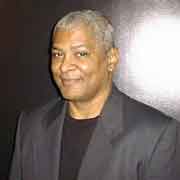I am currently enrolled in an advance entertainment law class at full Sail University. However, class will soon come to an end but I am proud to say that I have learned a lot in the last few weeks. In this class, I was able to see how companies and people take legal action when a law is broken. I am also able to interpret different case studies; this is due to the Monday and Tuesday night wimba sessions. The subject that held my interest the most would be tort law. After learning about several of them, I begin to do a little more research. So for my blog assignment, I decided to focus on torts and how they could possibly affect my business. Below, I will be summarizing three podcast that I have found during my research.
My first podcast covered “The 3 basics for finding liabilities” by Mark Montgomery from the “The Life of a Law Student podcast”. This website offers valuable information that focuses on defining what a tort is. A tort can be defined as an illegal act that is committed against one private party by another. A tort also deals with two things, criminals and contracts. Mr. Montgomery offers information on how we could use torts to address the wrongful party. Which deals with compensation and deterrence. He explains what modern torts are and how they come from the second writ of trespass on the case or action on the case. Which can be seen as an indirect action involving a tort. Finally, I have also learned that modern tort law has three bases of liability. The three bases are: intentional conduct, negligence, and conduct that could be either intentional or negligent. To review this podcast please refer to the website that is cited at the bottom of this page. Mr. Montgomery, will take you through several tort cases and how the plaintiff must prove the defendant to at fault or not at fault.
http://skyblufox.deviantart.com/art/Assault-and-battery-138366495
The second podcast “Civil battery and assault” refer to intentional torts specifically. There are also a number of different intentional torts that can be defined. In this podcast Mark Montgomery, describes in detail civil assault and civil battery as the first two intentional torts. When it comes to battery, a person intends to cause harm or may want to scare another person. To obtain the definition of a law, it is easiest to refer back to a restatement of a case. The American law institute made this possible by conveying these restatements in the place of common law. Montgomery, also refer to a 1704 case that was held in a New England Trail Court. Not only does this case have several different meanings for battery, it also states that battery may occur out of anger. However, battery has evolved and anger is no longer included. This is due to people not being things out of anger. They are aware of what they are doing, and maybe be doing it just because. Montgomery defines assault as unwanted or offensive contact. So in other words, the defendant must place victim in reasonable apprehension of harmful contact
http://www.pedigolaw.com/services/personal-injury/false-imprisonment/
The third podcast covers false imprisonment, which is another form of an intentional tort. It is always good to remember that torts do not require damages; the injuries symbolize an invasion of rights. Montgomery, use the example of some spiting on someone else as a form of an intentional tort. Even though, the person may not be able to show proof of damages in this type of situation. However, this should never discourage the person from taking action against the other. When dealing with tort case, the judge will determine the award and maybe focus on punitive damages. The reason for this is that the judge is trying to discourage the guilty party from ever doing this again. False imprisonment case can be described as someone violating your liberty. Which is your freedom to move about, were and whenever you want. The restatement will also give several definitions of what false imprisonment means. With lawful confinement there doesn’t have to be an act of physical restraint. Mark Montgomery also refers to a case that deals with a police officer on duty, he happens to see a dog wondering around. He follows the dog home and comes in contact with the owner. The police asked the owner to she her driver license has she got out of the car. The women refused and the police officer threatened to take her to jail if she didn’t. The women was eventually arrested and taken to the police station. She was convicted of a lease law, however she did win the case for false imprisonment. Her didn’t have to produce a license for the police officer because they were not deal with a motor vehicle issue. This cause was clearly about the victim dog being off the leash.
In conclusion, I feel as if all three podcast where interesting and informative. I have learned that a tort deals with either criminal or contracts cases. With intentional torts, I will always remember that damage will not have to be required. As a business owner I can definitely apply these laws to my business. There maybe times were I might have to deal with someone committing assault or battery at one of my events. In the event that this occurs, I must be prepared to take action. If there were one thing that I have learned, it would be to always refer back to the restatement of a case to determine what a law means.
http://itunes.apple.com/us/podcast/loals-torts/id215667454










